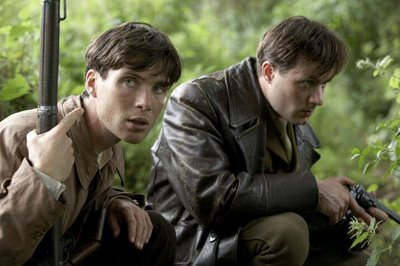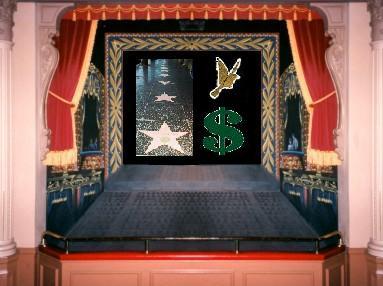
Barry McNally
In recent years films recreating momentous moments on Irish History have made it to the Big Screen, so to speak. Some films tend to be revisionist, others are there to inform whilst others simply for financial reasons. Thus raising the question ‘Is Hollywood cashing on Irish History?’
In 1996 Neil Jordan released his controversial interpretation of Irish History (1916-23) in the form of Michael Collins. Despite a number of inaccuracies in the film it does offer a look at the personalities, events and felling of the era. One must remember this was a time of continuous military struggle, continued oppression and ultimately civil war.
In order to assess the question at hand one must first question the motivation behind the film. It is clear that if Jordan was looking to make money from the film he definitely choose a difficult genre to do this from. One must remember that outside of Ireland the film wouldn’t have made much of an impact. Also at the time of its release the IRA had broken its ceasefire, declared in 1994. However the success of Michael Collins brought the money pouring in. However I think it is fair to conclude that Neil Jordan’s motivation was to tell the story of Michael Collins and Ireland of that time. Indeed it is an interesting point that he had began his script for the film 13 years before it was released.
In The Name Of The Father released in 1993 tells the story of the ‘Guildford 4’ who like so many others found themselves at the receiving end of ‘British Justice’.
Directed by Jim Sheridan the film is not only critical of the IRA but also of the British judiciary.
Beyond the events happening in the film it shows the strains in the father / son relationship of Gerry (Daniel Day Lewis) and Giuseppe (Pete Postlethwaite) Conlon.
In analysing the motivation behind such a film one can conclude that In The Name Of The Father, whilst being based on real events is too dramatised for the sake of Hollywood and is directed primarily at cinema going audiences rather than being a tool of information. After all the huge miscarriage of justice was a live news story – certainly in nationalist Ireland for years to come.
Some Mothers Son, released in 1996, some 15 years after the events it recreates. Gerard Quigley and Frank Higgins are both IRA members who find themselves inside Long Kesh during the 1981 Hunger Strike and both men become centrally involved, both volunteering for the Hunger Strike. The film highlights that difference of background of both men yet how to two still joined the IRA and subsequently ended up in jail as combatants in the liberation struggle. While Higgins come from a tradition physical force Republican family while Quigley comes from a household which could be described as pacifist and who doesn’t agree with the armed campaign being waged by the IRA.
Helen Mirran (Kathleen Quigley) plays an absolute storm in the film supported by Fionnula Flanaghan who plays the mother of Frank Higgins.
The film has managed to tell the story of the 1981 Hunger Strike in an emotional and human level and has done well to avoid the often glamorisation of such events by Hollywood.
H3 was a film written by two former IRA blanketmen, one of whom spend 73 days on the 1981 hunger strike. Laurence McKeown and the late Brian Campbell began writing the script in jail and completed it after their release in 1992. And in this respect it stands alone and from the outset would seem to tell the story of the 1981 hunger from a republican perspective aimed primarily at informing others as opposed to raising capital.
Centered around IRA OC in the blocks, Seamus Scullion, H3 tells the Story of the interim period of the end of the 1980 Hunger Strike and ending with the death of Bobby Sands on May 5th 1981. Told through the perspective of fictional characters, it brings the audience into the world of the protesting prisoners. It tells of the hardship suffered by the prisoners and the high and low points of the protest, with the latter being more prevalent.
I think it is fair to conclude that H3 is aimed at informing people of the real situation in the H-blocks in the early 1980’s’ period rather than being presented with a British version of events. It has tried to cut through the British propaganda machine with the films version of events and presents the Hunger Strike as seen by those centrally involved on the strike and by the protesting prisoners on the H-Blocks. So has H3 been cashing in on Irish History? I think the answer is clearly no. Rather in my opinion is has succeeded in giving a fair interpretation of the events, even though the writers are Irish Republicans.
So is Hollywood cashing in on Irish History? I think undoubtedly there are films out there that are there to make a penny or two from the conflict of the last 800 years. However many of the films I have analysed above have been primarily- I believe about informing rather than making money. However some may disagree or agree. The debate may go on - so- Have Hollywood cashed in on Irish History?….. now its over to you.


No comments:
Post a Comment